CLEANING RIMS THE RIGHT WAY
Stubborn dirt builds up on rims over time, such as from road dirt, brake dust or road salt. To ensure that aluminium rims retain their shine and steel rims remain rust-free for a long time, thorough rim cleaning is recommended on a regular basis. With these tips on how to clean rims, it's quick and easy.
Best way to clean rims: step by step
Beautiful rims enhance the appearance of any car. But wetness, road dirt, brake dust and road salt take their toll on them. Over time, the dirt can really burn into the rims. It then becomes increasingly difficult to remove dust and dirt completely. Regular, thorough rim cleaning is therefore advisable. It is particularly easy when changing from summer to winter wheels and vice versa. The wheels can then be cleaned and stored. However, they also need regular care during the year.
And this is what you need to thoroughly clean rims:
- A pressure washer or a bucket of water
- A rim cleaner
- A (rim) brush
- A sponge
- A soft cloth, e.g. microfibre or leather
This is what to do:
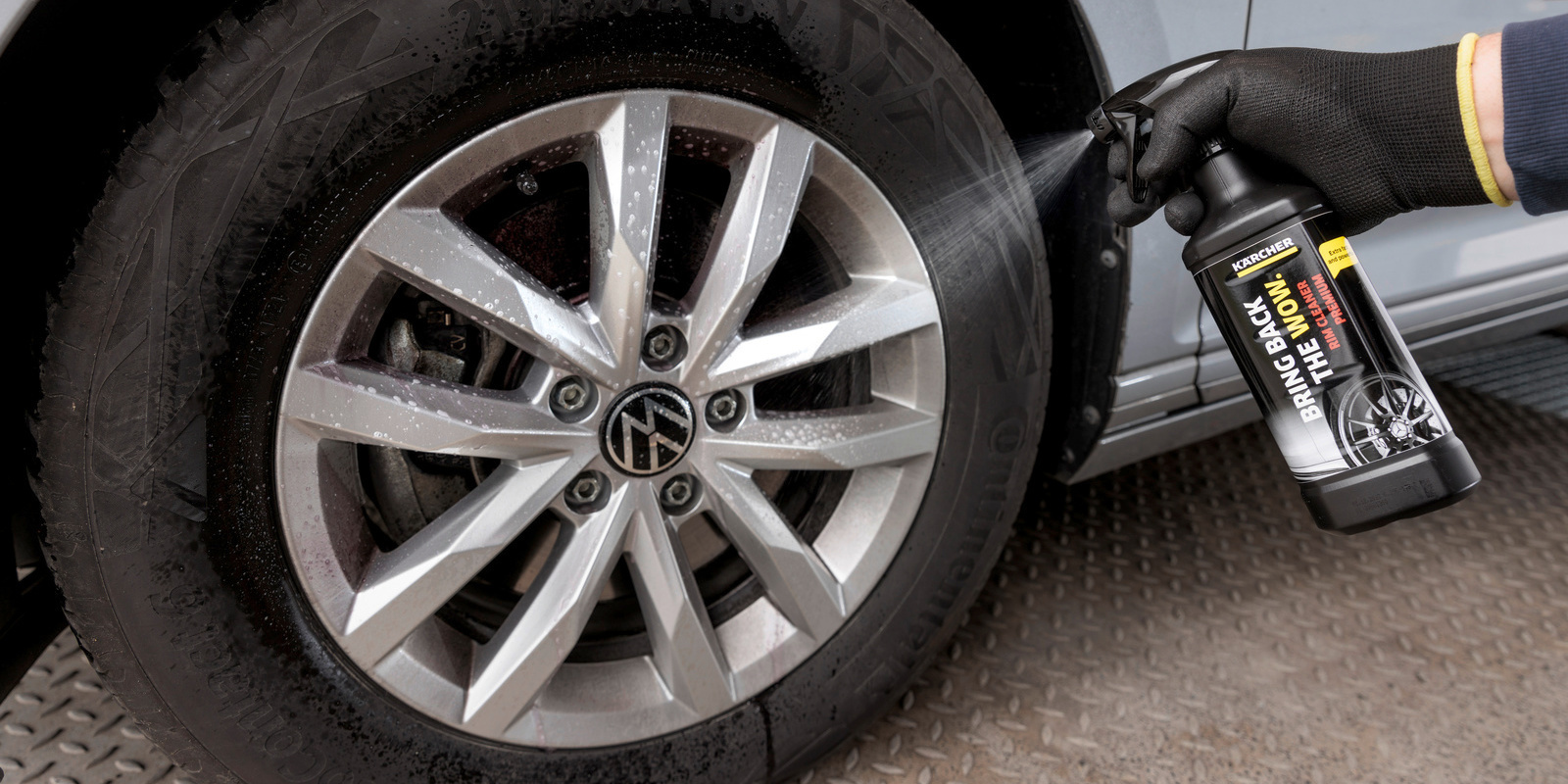
1. Apply rim cleaner
Against stubborn dirt such as dust or road salt, spray rim cleaner on the aluminium or steel rim and let it get to work. The rim should be dry during application. For optimal results, the cleaner adheres best to a dry surface.
Ensure that the cleaning product is as acid-free as possible this is more gentle on the material. Acidic rim cleaners (pH between 1 and 5) can attack the surface of the rim over time, making them unsuitable especially for shiny materials, such as chrome rims or alloy rims.
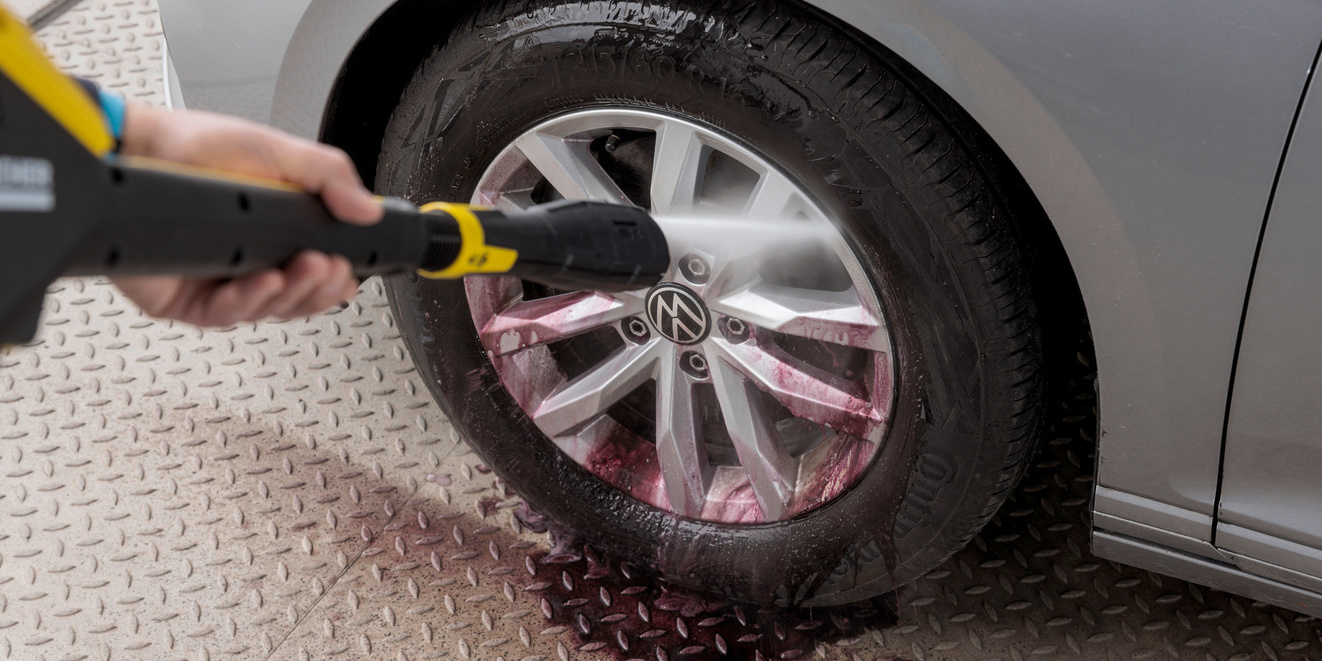
2. Rinse the rim and remove coarse dirt
The next step is to rinse the rim with the pressure washer (Flat jet), a handheld cleaner or with a bucket of lukewarm water and a sponge. When cleaning by hand, protective gloves should be worn so that the skin does not come into contact with dirt.
If you don’t use a cleaner, you can still clean the rim in this way, i.e. remove any superficial dirt and prepare for a thorough clean.
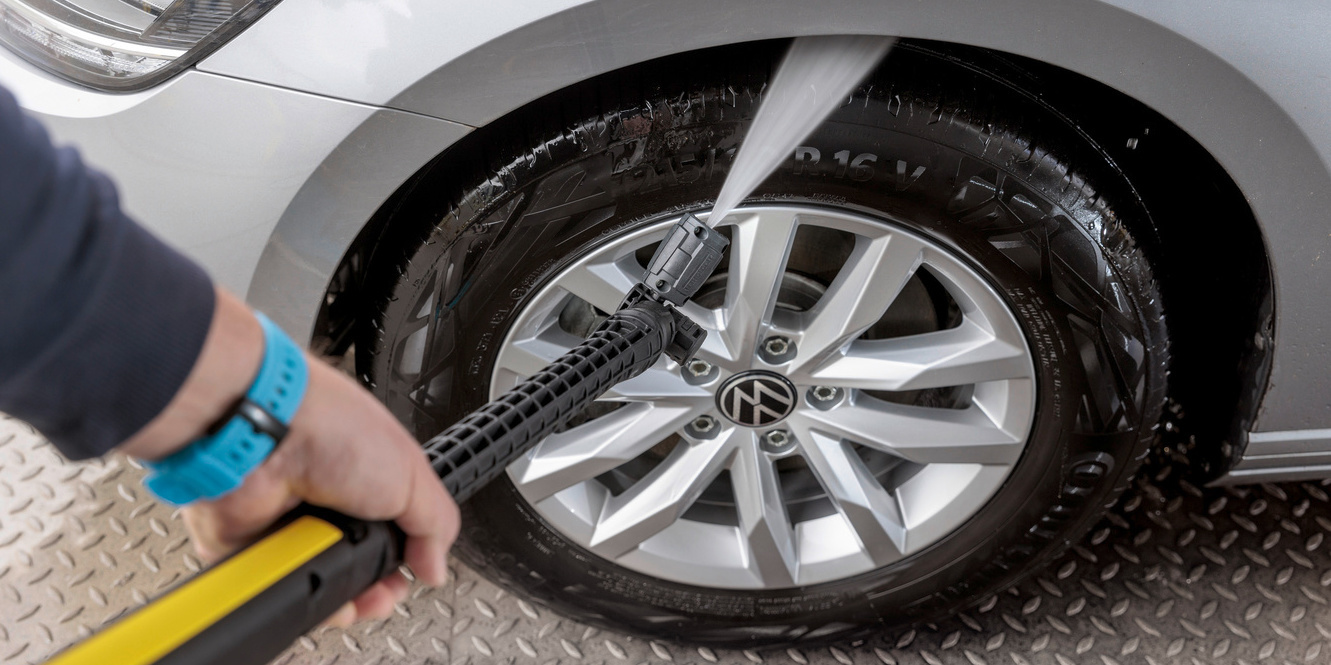
3. Clean wheel wells
At the same time, you can clean the wheel wells on the car, preferably with the pressure washer and the flat jet nozzle attachment. Tip: hard-to-reach places can be cleaned even more easily with the pressure washer using a variable nozzle joint.
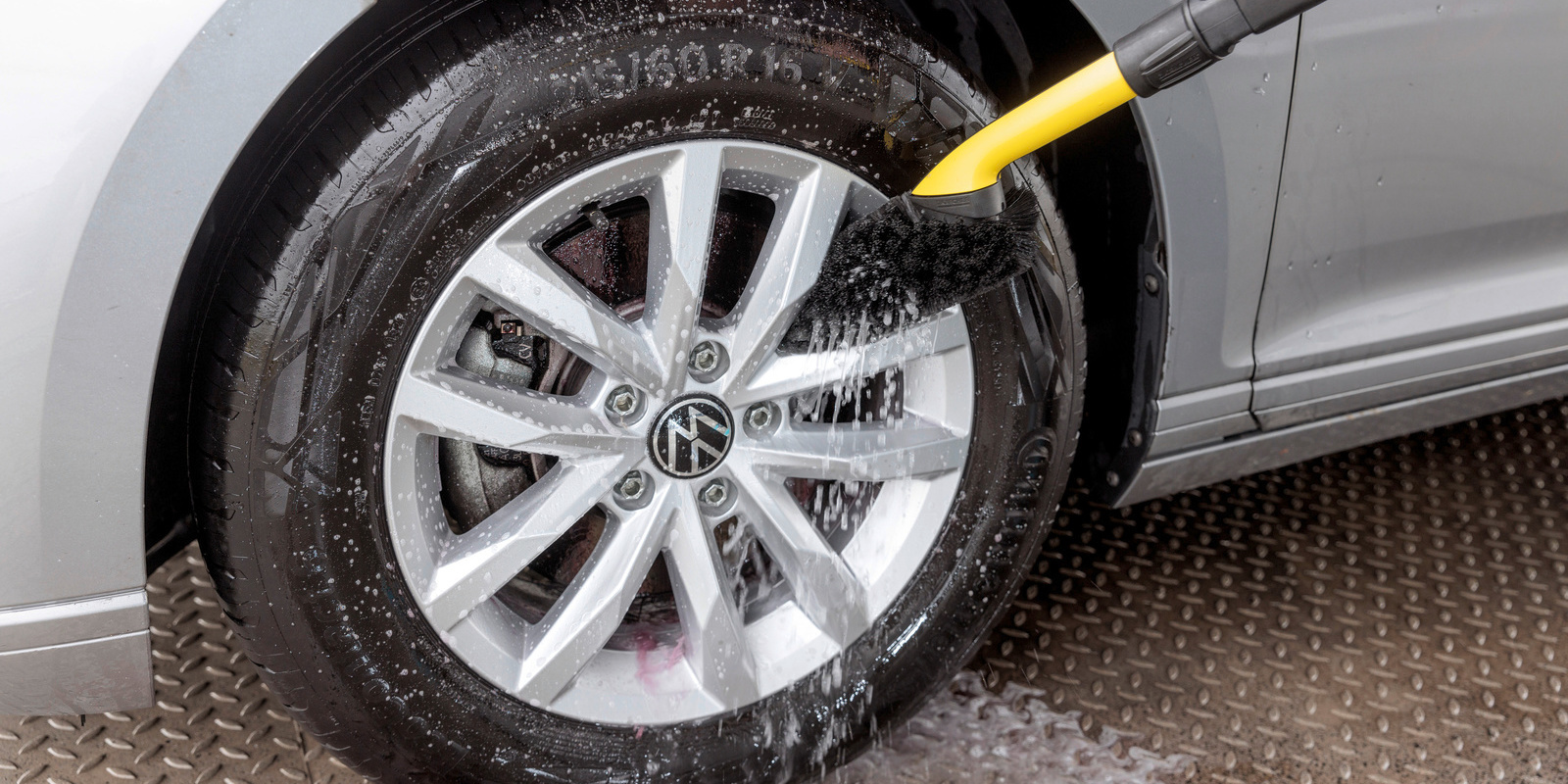
4. Clean rim thoroughly
Now it's time for thorough rim cleaning: Often, despite detergent and pre-cleaning, stubborn dirt remains on the rim, especially in narrow gaps. These can be effectively cleaned with a wheel washing brush For particularly tight spots, a soft old toothbrush or a soft brush is also suitable.
If the residues cannot be completely removed in this way, cleaning products can be used once again: simply apply, leave on to act and rinse thoroughly with clear water.
Afterwards, allow the rim to dry or rub dry with a leather cloth. The latter is particularly recommended for chrome rims and black rims, since water spots are more noticeable on them.
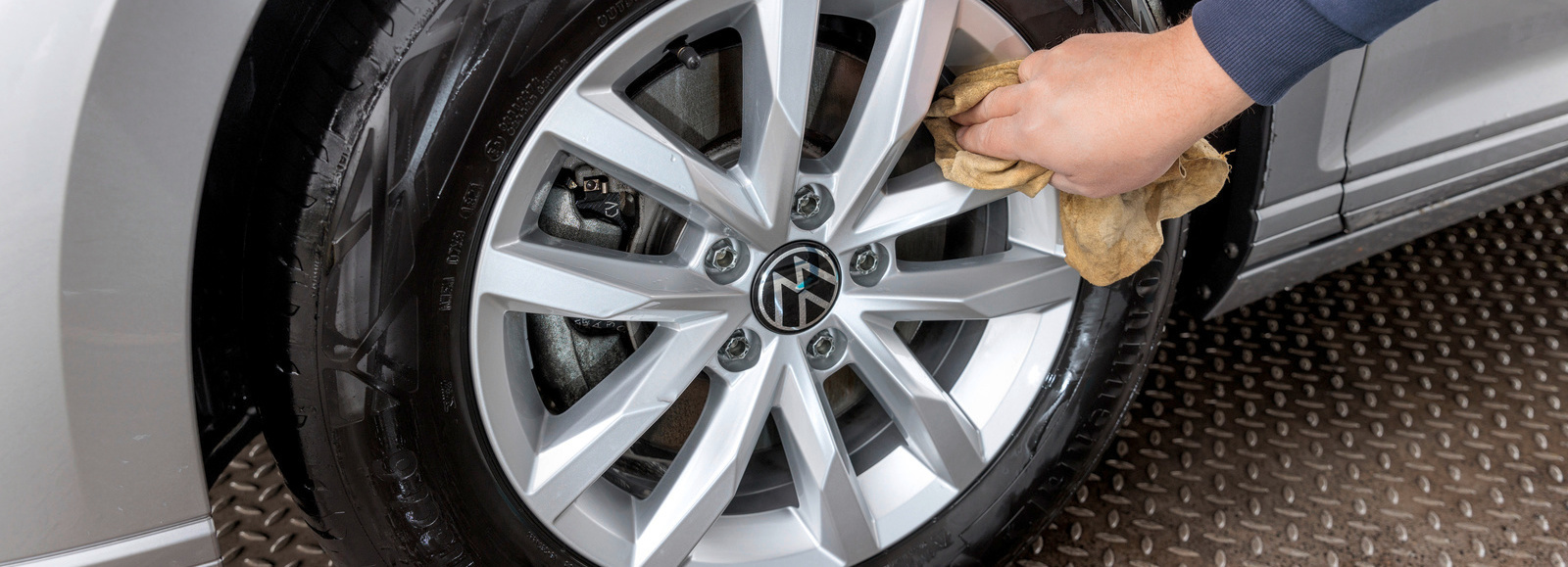
Attention: follow regulations
Rim cleaning is usually only allowed where the car can also be washed. This is best done in the self-service wash box. However, you should use the rim cleaners offered at the facility, as the use of third-party cleaners is usually not permitted. Whether cleaning is allowed on private property depends on the local regulations.
Tip: Rims and car tires should always be cleaned separately from the rest of the car. This is because road dirt and small stones, as well as stubborn deposits on the rims, can damage the paintwork of the vehicle. For example, if the same wash brush is used to clean the body and wheels.
Frequently asked questions
How to remove brake dust from rims?
Burnt-in brake dust and tire wear can be quickly removed from steel and aluminium rims with a special rim cleaner. The Kärcher Rim Cleaner is acid-free and therefore gentle on materials. Its reddish colouration indicates how it is taking effect over time. Simply spray onto the dry rim, leave to act for 1-3 minutes, and then rinse with clean water. Stubborn dirt can be removed after allowing the cleaner to work, with a wash brush.

How to remove salt residue from rims?
Whoever is on the road with fancy alloy rims, even in winter, should regularly free them from salt deposits, as these attack the material in the long run. However, at the latest when changing from winter to summer tires, all deposits should be thoroughly removed from aluminium as well as steel rims. A rim cleaner works best. Alternatively, some car washes offer special options for rim cleaning
How to remove rust from rims?
You can easily remove rust from steel rims yourself using a wire brush. Then touch up with using emery cloth.
Aluminium rims and chrome rims cannot rust, but moisture and road salt can also leave their mark. The material can oxidise, or it can lead to salt corrosion. Both should only be removed very carefully, e.g., with a soft brush, as aluminium and chrome scratch easily. The surface should then be polished. If you are confident enough, you can do the polishing yourself. Otherwise, it is recommended to have professionally done.
Which wash brush is suitable for rim cleaning?
As an accessory for the pressure washer, a wheel washing brush is a great option. Thanks to its special shape and all-round bristles, it allows extremely effective 360° cleaning. Even hard-to-reach places and the smallest gaps on rims can be thoroughly cleaned with the brush. Due to the even distribution of water, dirt is uniformly dissolved and rinsed off.

What home remedies can you use to clean rims?
If you don't have a rim cleaner handy, you can also use simple home remedies to clean them:
Trick 1: Clean alloy wheels with toothpaste
A suitable home remedy for cleaning aluminium is toothpaste. Slightly moisten a clean cloth and apply some toothpaste. Then rub the aluminium rims vigorously with it until the dirt comes off. Rinse the cloth repeatedly with clean water and wring it out. Finally, wash the aluminium rims again with clean water and allow to dry. Due to the abrasive particles in the toothpaste, you can also use it to polish light scratches. However, be careful with highly polished rims and chrome rims, as these could be scratched by the abrasive particles or lose their high-gloss finish.
Trick 2: Clean alloy wheels with a cleaning paste
You can also get aluminium rims and co. clean again with cleaning paste: moisten a sponge with water and rub it over the cleaning paste to create lather. The aluminium rims can now be cleaned with this lather. After cleaning, rinse the rims with clean water. Even when using cleaning paste, however, caution applies to highly polished rims and chrome rims.
Trick 3: clean painted and coated rims with washing up liquid
On painted and coated rims, dirt and burnt-in brake dust can cause damage to the paint. Dirt can be loosened particularly gently with washing up liquid: Add a few squirts of it to lukewarm water and clean the surface with a sponge, preferably made of microfibre. Then rinse with clean water and dry with a soft cloth. If this method is not sufficient to remove the dirt, you should resort to an acid-free rim cleaner.
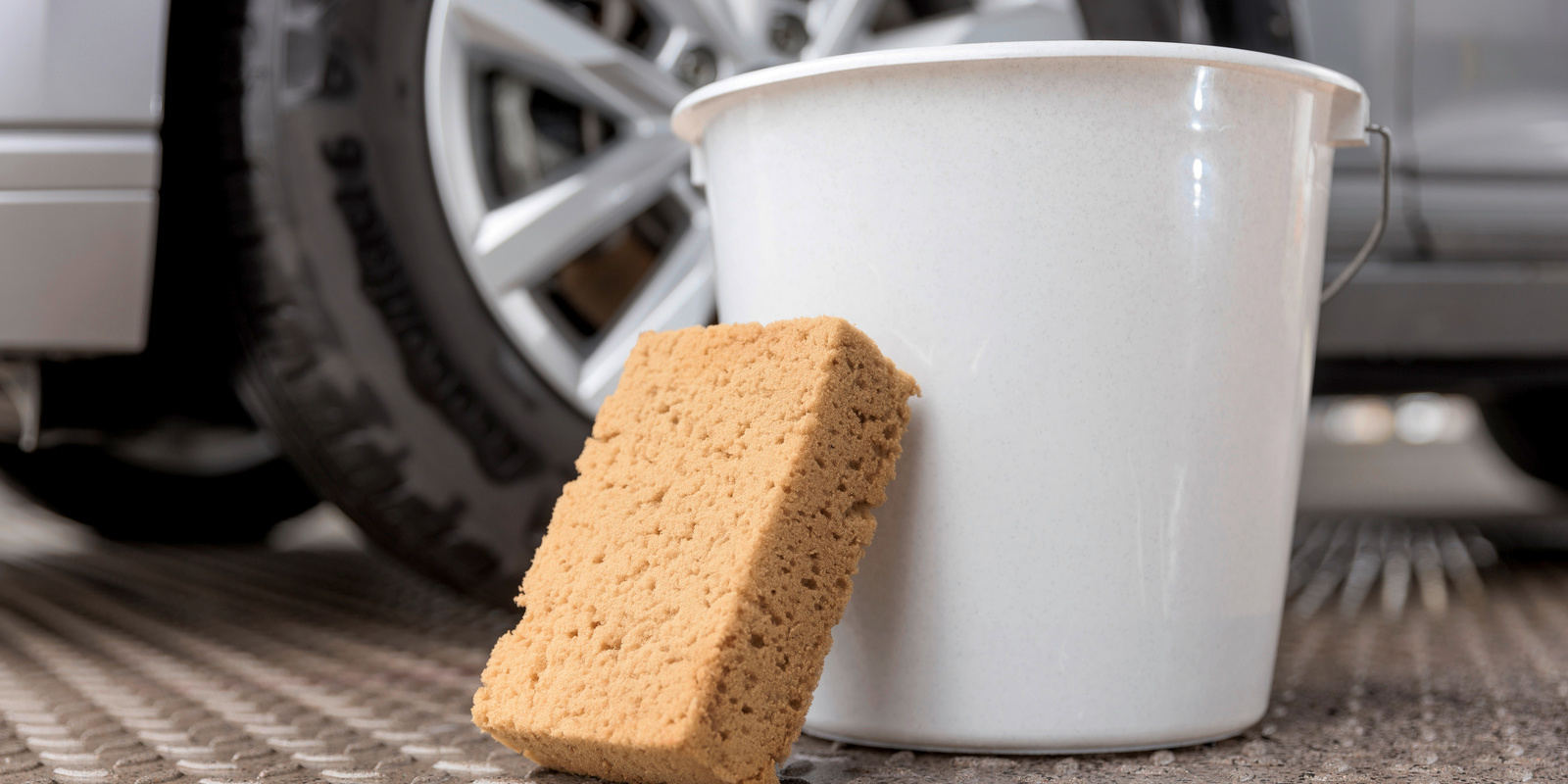
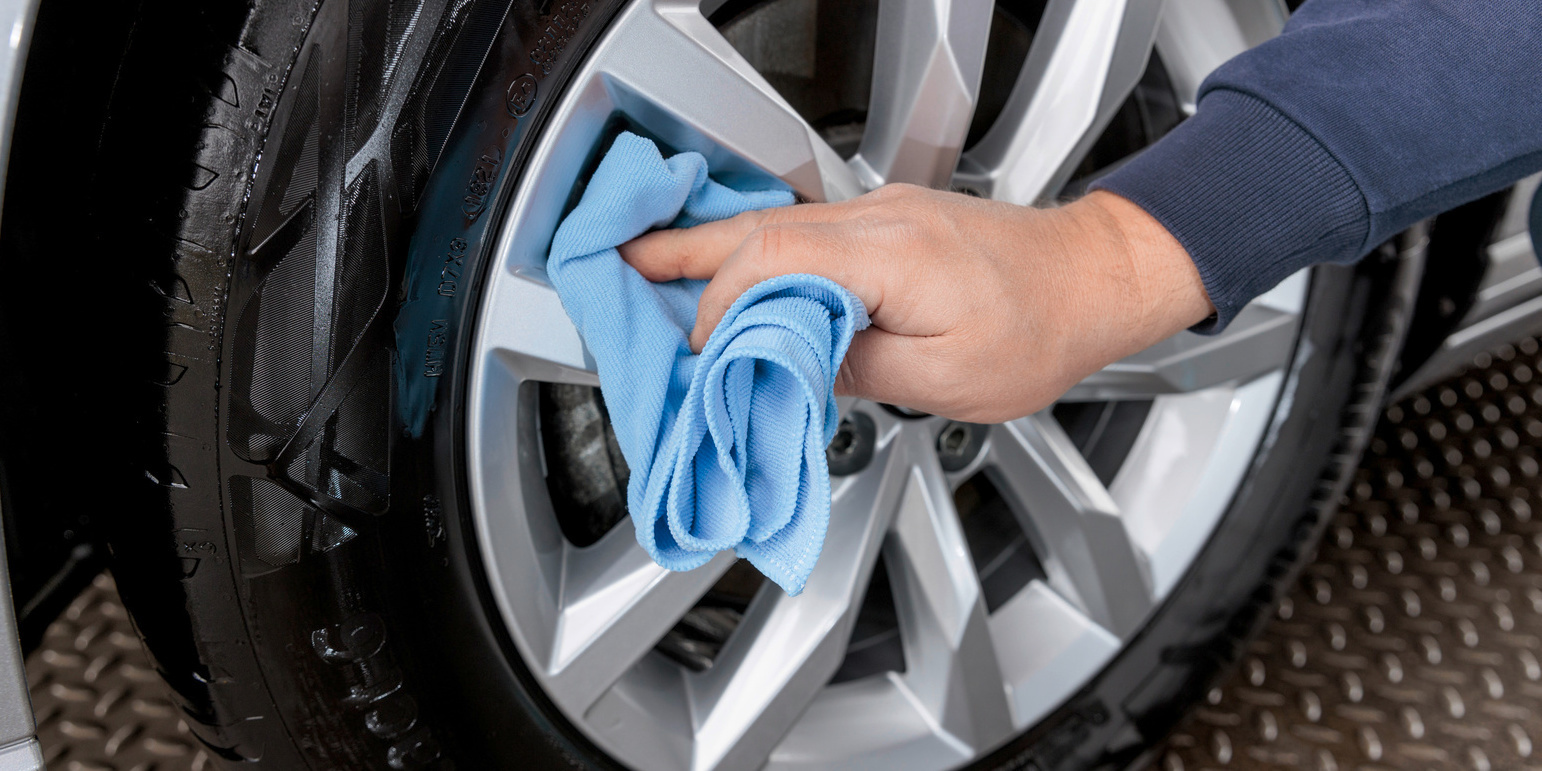
Tip
Before using a homemade cleaner or a new cleaning product on the rim, always test it in advance in an inconspicuous spot.
What is the best way to clean chrome rims?
Over time, chrome rims may lose their shine and become dull. To remove brake dust and rust, you may not be able to use rim cleaners, because the acid contained can damage the delicate chrome surface. Instead, gentle cleaning agents should be used, such as soap and water. Sodium bicarbonate is also a suitable home remedy: add three tablespoons of sodium bicarbonate to a bowl, add a little water while stirring constantly until a paste is formed. Using a soft cloth, rub the paste over the rim in circular motions until all the deposits are removed. However, there are rim cleaners that have been specially developed for chrome and effectively dissolve dirt.
In addition to cleaning, chrome should be polished regularly so that it retains its shine and its special appearance.





